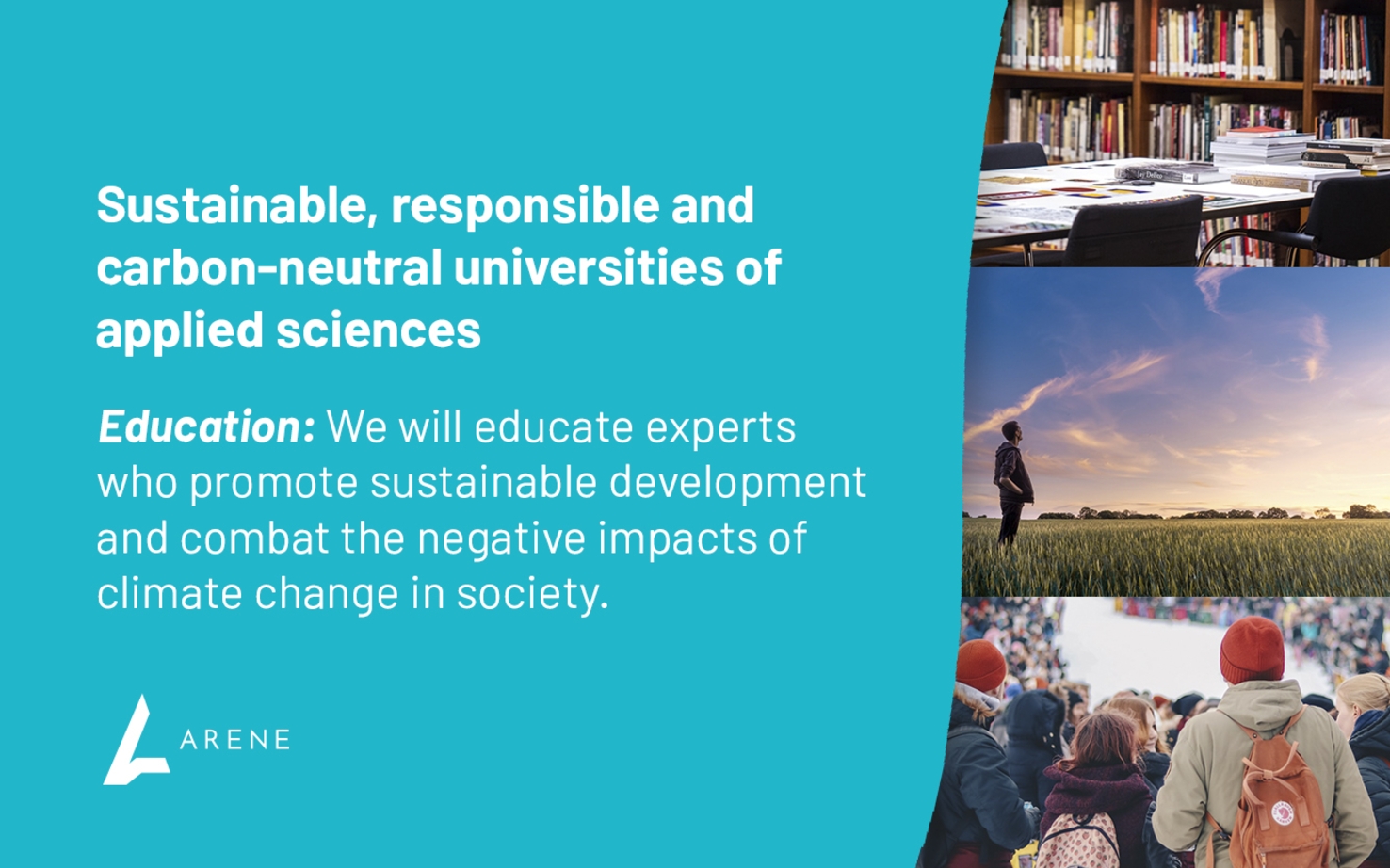Sustainable development skills for everyone
Universities of applied sciences have approved a joint programme for sustainable development and responsibility based on the Sustainable Development Goals that the UN accepted in 2015. The goal of the programme is a sustainable, responsible and carbon-neutral university of applied sciences by 2030.

— The task of universities of applied sciences is to globally build a better future together with working life and business. This competence helps us move towards a carbon-neutral society, says Rector Turo Kilpeläinen who led the preparation of the programme.
According to Arene the core of the programme consists of strengthening the ecological handprint of universities of applied sciences and reducing their carbon footprint. These ideas have been depicted as 14 promises and concrete measures that will start at the beginning of 2021.
— 30,000 annual graduates from universities of applied sciences, EUR 200 million investment in RDI and 9,500 person-years have an enormous importance in building the future of society. Education and RDI activities create our societal impact, our handprint. Universities of applied sciences are striving for carbon neutrality by 2030, Kilpeläinen emphasises.
With the programme for sustainable development and responsibility, the education at universities of applied sciences will be developed so that each graduate has the ability to promote sustainable development and combat the negative impacts of climate change in society. Sustainability and responsibility are taken into account in all RDI activities and they are directed towards producing solutions to sustainability challenges, promoting sustainable development and reducing the impacts of climate change.
As regards management and personnel matters, universities of applied sciences promise to act as economically, ecologically, culturally and socially responsible employers.
— The implementation of the programme means concrete changes in the teaching at universities of applied sciences, in working life cooperation and innovation activities. So we promise to do what we teach, Kilpeläinen says.
Universities of applied sciences will be carbon neutral by 2030. In order to achieve this, universities of applied sciences systematically commit themselves to taking various measures to reduce emissions, to monitor the development of their carbon footprint and to seek other means of achieving carbon neutrality together. The most significant producers of carbon footprint in universities of applied sciences are related to mobility and travel, properties, food services and procurements.